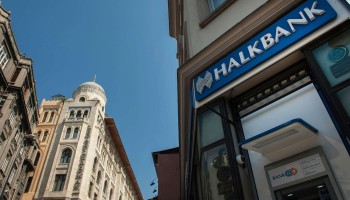In part, this is because of Saudi Arabia and US jurisdictions being on the list, Carl Dolan, director of Transparency International EU, told the OCCRP.
“The UK, of course, has major business relations with [Saudi Arabia]. Saudi Arabia is seen as a major partner in the war on terror,” he said.
The blacklist includes 23 jurisdictions that the European Commission (EC) considers to be at high risk of money laundering. It was published by the European Commission on February 13th of this year.
If member states adopted the blacklist, then EU banks would be required to perform additional checks before accepting money originating from customers and financial institutions in the named jurisdictions.
News outlets report that EU sources said that the list would be vetoed during Thursday’s talks in Brussels.
Dolan agrees that the list is certain to be shot down by EU member states--even in the wake of revelations about the Troika Laundromat, a scheme that channeled billions of dollars out of Russia with the help of major Western banks such as Citigroup Inc., Raiffeisen, and Deutsche Bank.
“It’s an absolute certainty. The only country that’s not opposed, at least on record, is Belgium,” Dolan said. “This is a step backward. Political considerations will predominate,” he said, adding that this was a case of realpolitik trumping concerns about corruption.
The US could even try to subvert the blacklist by not allowing American banks to assist Europe with its due diligence, according to Dolan.
“It’s more about the Americans being unhappy about this. They’ve been very vocal about their unhappiness. They’ll ask their banks not to comply… the American government has advised banks not to enhance due diligence.”
Dolan said that member states would be reluctant to bring a case against US banks for not adhering to stricter standards, though he added that US banks have no trouble levying fines on European banks.
After the likely rejection, says Dolan, there are several ways forward: the EC might draw up another list, or member states may themselves agree on a blacklist. Either way, he says, the rejection dilutes the EU’s firm stance toward money laundering.
“The main issue is that it was the first attempt by Europe to draw up a blacklist that had some teeth. That had consequences,” he said.
“There’s been a number of laundromats now, and the amounts laundered through European banks is staggering...and none of that seems to have changed the minds of member states.”






